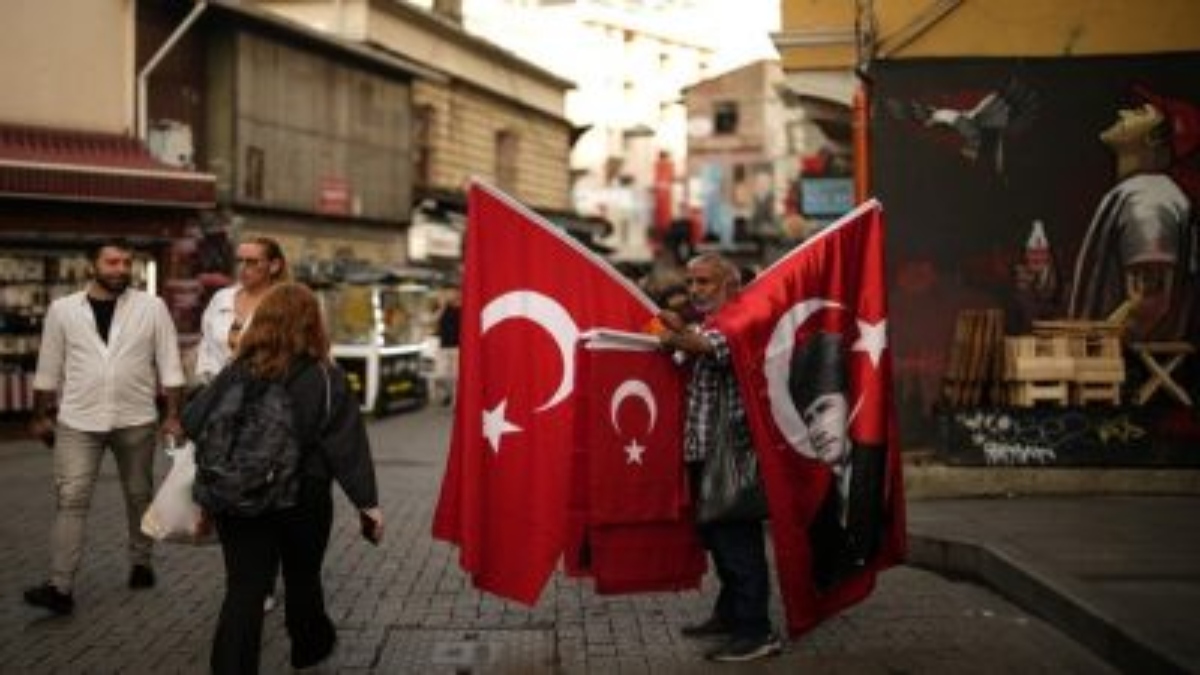EU-Funded Initiative to Help Algeria’s Children
The watchdog was established in cooperation between the Algerian committee for public health promotion and the European Union, which offered 100,000 euros in aid to support the watchdog, to sponsor the initiative.
The watchdog, whose honorary president is former Algerian leader Ahmed Ben Bella, will receive complaints from children on any violation of their rights.
“There are around 14 million children in Algeria aged under 17, making up around half of the Algerian population. Those children don’t get enough attention or care, especially in the 1990s post-terror era,” Dr. Mustafa Khayati, head of the Algerian committee for public health promotion, told IslamOnline.net Wednesday, February 9.
Algeria had fallen into a bloody, vicious cycle of violence in early 1992 after the government had annulled the results of the 1991 legislative election in which the outlawed Islamic Salvation Front was about to secure a landslide victory.
The authorities then disbanded the Islamic movement and unleashed a crackdown on its members, arresting scores of them.
The government move had triggered a bloody armed conflict that lingered on for several years, claiming the lives of some 150,000 people, mostly civilians.
First Step
The idea of setting up a national watchdog with the aim of protecting children rights came into being to achieve two main goals, Khayati said.
“Firstly, Algeria has adopted a policy of national reconciliation to heal rifts in the country. Secondly, the necessity to allow the civil society to take part in social affairs, foremost of which is the protection of children rights.”
Within the context of tackling social problems in the Algerian society, the watchdog’s executive staff, comprising psychiatrists, sociologists and legal members, will follow scientific research means to reach solutions to these problems before forwarding the drawn studies to the concerned officials in all government sectors, he maintained.
Following in the footsteps of EU countries, the watchdog will also set up a hotline, called the Green Line, to receive children complaints on violations of their rights, allowing the watchdog to immediately interfere to stop such violations, Khayati added.
Providing enough care for around one million children suffering the grave consequences of the bloody cycle of violence in the country tops the watchdog’s list of priorities.
“Those children have now become adults. We have noticed prevailing social violence among them due to the psychological shocks they faced in their childhood such as family break-ups, sexual molestation and incest,” he said.
The watchdog will also tackle the school dropout and handicapped children, whose number is estimated at around 340,000, more than 96% of whom have dropped out of basic education.
Single Mothers
The watchdog will also tackle the issue of single mothers’ children — illegal children — in a bid to integrate them into the Algerian society.
A study conducted by the Algerian committee for public health promotion estimated at some 3,000 children per year the average number of single mothers’ children during the past 15 years.
More than 90% of those children were brought up by Algerian families, especially following the enactment of a legislation in 1992 allowing this practice, according to the study.
Last September, the Algerian government has decided to give a single mother 10,000 dinars a month ($110), arguing it helps those mothers bring up their innocent babies in an optimal atmosphere, sparking a bitter debate in the Algerian society over the unprecedented and exceptional move in the Arab world.
Financial Support
More financial support is needed for the watchdog to help implement its plans to protect children rights, Khayati said.
“The watchdog’s executive council has established a committee, joined by Algerian businessmen and pubic and private companies, to draw up regulations on financing the watchdog’s plans.”
The European Union is offering financial aid to Algerian non-government organizations (NGOs) as part of the Euro-Mediterranean Partnership program (MEDA I & MEDA II).
On the phenomenon of street children in Algeria, Khayati said a polytechnic agricultural school is to be established in two months to educate the street children, calling for combating such a phenomenon and rehabilitating those kids to join the labor market.


)